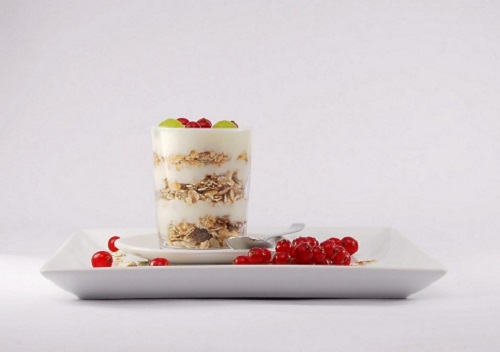
Probiotics may be one of the most important groups of nutrients that improve the function of your intestine and other organs. However, many people are not familiar with the significance of incorporating a healthy dose of probiotics into their diet.
Here are seven foods that provide your body with the probiotics it needs to function properly.
Yogurt
Yogurt is enriched with healthy bacteria that help improve the performance of your gut and boost its overall function. Probiotics facilitate the growth of healthy bacteria in your body, which prepares your body to fight against gut inflammation. Yogurt is an inexpensive, plentiful source of probiotics, but be sure to choose the most beneficial varieties. Organic and Greek yogurts contain a higher level of probiotics as compared to their non-organic counterparts.
Avoid purchasing yogurt that is actually labeled as “probiotic.” The companies that claim to offer probiotic-laden yogurts tend to add corn syrup, excessive sugar, artificial sweetener, and dyes in their products to expand its shelf life. Also, this type of yogurt is frequently pasteurized, which ends up killing the probiotics in the yogurt.
Kefir
Kefir is a yogurt substitute that provides high levels of probiotics to help treat inflamed or leaky gut. It is produced by combining rice, sheep, goat, cow, or coconut milk with a gelatinous grain and fermented. The fermentation process expedites the growth of healthy bacteria. Kefir contains approximately 10-34 types of probiotics that can quickly soothe the symptoms of a leaky intestine.
Kombucha
Kombucha is a type of drink enriched with high levels of probiotics and is often recommended to patients who have been diagnosed with an inflammatory and leaky gut. Kombucha’s high level of Symbiotic Colony of Bacteria and Yeast (SCOBY) plays a vital role in improving the performance and functions of your gut. It is prepared by combining SCOBY with sugar extracts to sweeten the juice and initiate the fermentation responsible for the probiotic content.
When correctly prepared, kombucha provides a number of health benefits that that can help improve the condition of your digestive system, increase your metabolism and aid the function of the liver.
Miso
Miso is packed with probiotics that play a crucial role in improving the performance of your gut. Miso is prepared by combining fermented rye, barley, and beans with koji. It is often recommended by nutritionists and doctors for patients diagnosed with an inflamed gut.
Natto
Natto is prepared through the fermentation of soybeans. It has a strong flavor and a high presence of probiotics. Natto consists of Bacillus Subtilis, which plays a vital role in the improvement of your immune system, absorption of vitamin K2, and overall cardiovascular health. It also contains high quantities of nattokinase, which may help prevent cardiovascular disease.
Kimchi
Kimchi is prepared through the fermentation of vegetables, which brings the benefits of probiotic bacteria as well as fiber and vitamins. The beneficial power of kimchi comes from Lactobacilli bacteria, which helps aid digestion. There are hundreds of different varieties of kimchi, but the one that may be most familiar is made from salted napa cabbage and spices. It’s best to look for refrigerated kimchi products because shelf-stable varieties are pasteurized, which kills the healthy bacteria.
Sauerkraut
Sauerkraut is finely chopped cabbage that has been fermented. It’s rich in vitamin K, vitamin C, iron, and fiber, and its probiotics help your body absorb these nutrients more easily. Research has reported that one serving of sauerkraut may contain up to 28 distinct bacterial strains of probiotics, which helps to demonstrate its immune-boosting properties. Make sure to choose unpasteurized sauerkraut, as pasteurization kills the live and active bacteria.
Summary
More and more studies show the balance or imbalance of bacteria in your digestive system is linked to overall health and disease. By incorporating some of these probiotic-rich foods into your diet you’ll help promote a healthy balance of beneficial gut bacteria to keep your body healthy and functioning at its best.
Did you find this article helpful? Leave us a comment below and let us know your key takeaway.
Would you like to receive more easy to implement health tips and recipes sent straight to your inbox? Click Here to get nourished.
Resources:
https://www.ncbi.nlm.nih.gov/pubmed/12788716
https://www.ncbi.nlm.nih.gov/pmc/articles/PMC6043915/